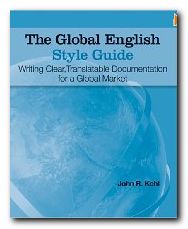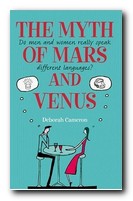how to simplify and clarify your writing
This is a new series from OUP – pocketbook guides on the basics of writing and language skills. They’re small, cheap, cheerful, and compact, yet authoritative – the sort of thing which I imagine would be ideal for students or the average person-in-the-street who wants to take on the first principles of improving their language skills. Oxford Guide to Plain English is written by the research director of the Plain Language Commission.
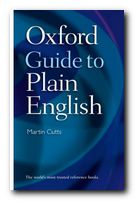 It’s presented in a lively and professional manner, and Martin Cutts uses so many real-life examples you know he’s speaking from deeply-felt practical experience. He offers quick tips for creating a clearer style, better grammar, punctuation, and layout. He explains how to avoid jargon and legalese, and how to use plain English instead. And he has no patience with sloppy communication. For instance, have you ever received an official letter like the example he quotes from the DVLA?
It’s presented in a lively and professional manner, and Martin Cutts uses so many real-life examples you know he’s speaking from deeply-felt practical experience. He offers quick tips for creating a clearer style, better grammar, punctuation, and layout. He explains how to avoid jargon and legalese, and how to use plain English instead. And he has no patience with sloppy communication. For instance, have you ever received an official letter like the example he quotes from the DVLA?
I again return your application for renewal of road fund licence and reiterate the correct amount is £130. I have enclosed a photocopy of your original document you will notice it clearly datestamped 2nd December, some two days after Budget day.
Four mistakes in forty-three words is not bad going for a government [in the UK] which claims it is committed to increased efficiency and clarity of communication!
He shows you how to avoid this sort of thing – and how to replace mistakes with clear meaning. There are hundreds of real examples to show how it’s done, including ‘before’ and ‘after’ examples.
There’s a good list of contemporary cliches and expressions to avoid, including the Plain English expressions which can quite easily replace them.
The basic information is very sound. Sentences twenty words or less; plain words rather than elaborate vocabulary; vigorous and active verbs rather than the passive voice; bulleted lists to explain multiple points of argument; strict but minimalist punctuation; planning as an indispensable tool to good structure; and even avoiding too many grammatical rules.
It even includes advice on writing effective emails, and as an advocate of good spatial design in written communication, I was pleased to see that there was a whole section devoted to good layout.
Good value; good advice; and good format if you want something cheap and cheerful as a start-up or a pocket reference.
© Roy Johnson 2009
Martin Cutts, Oxford Guide to Plain English, Oxford: Oxford University Press, 3rd edition 2009, pp. 272, ISBN: 0199558507
More on writing skills
More on language
More on grammar
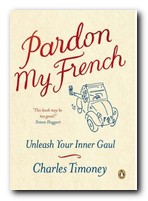
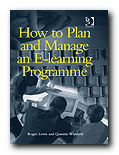
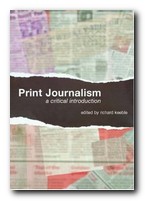
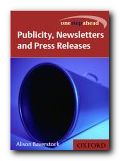
 Rather surprisingly, many of the early examples of word squares and double acrostics he discusses come from curse tablets which people believed were effective for anything from defeating fellow athletes in competition, to curing the bite of a rabid dog.
Rather surprisingly, many of the early examples of word squares and double acrostics he discusses come from curse tablets which people believed were effective for anything from defeating fellow athletes in competition, to curing the bite of a rabid dog.
 Today’s Internet users are relying on their smartphones or tablets for quick and easy Internet access, rather than laptops and desktops. And no wonder. It’s simply more convenient and portable. However, those with tight finances haven’t always been able to enjoy the benefits of 4G connectivity. But this will all change with the announcement of T-Mobile’s reinvigorated challenger strategy. This offers more affordable options to cash-strapped customers. When subscribers to
Today’s Internet users are relying on their smartphones or tablets for quick and easy Internet access, rather than laptops and desktops. And no wonder. It’s simply more convenient and portable. However, those with tight finances haven’t always been able to enjoy the benefits of 4G connectivity. But this will all change with the announcement of T-Mobile’s reinvigorated challenger strategy. This offers more affordable options to cash-strapped customers. When subscribers to 